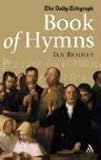We did the latter today for communion and the singing was strong. However, there were also two other hymns from Hymnal 1940 that were much harder.
Hail Thee, Festival Day
Regular readers know this (H40: #107) is my favorite Whitsunday hymn, and not just because it’s my wife’s favorite hymn for the Easter, Ascension and Pentecost season or because it’s Ralph Vaughan Williams’ 2nd greatest hit.However, consistent with my recent music studies, today I tried to pay attention to how others were reacting to it. A few thoughts:
- Consistent with the rest of the day — and previous visits here and elsewhere — the women were stronger than the men; more of them sang, and they sang more loudly. I’m guessing that among those under 50, more women had formal music training.
- The men were essentially the choir and one former choir member (me) until the clergy and acolytes processed in the building.
- The men’s part is (as always) objectively harder than the women’s part with the triplet rhythm.
- Across the three verses, each verse was stronger than the previous one.
From my research at six Episcopal/Anglican parishes in Texas, according to music directors and congregation members, this is one of the hardest hymns in the canon. (St. Patrick’s Breastplate being the other, because it is very long).
Objectively, it is a difficult hymn for any small or medium sized parish to sing without choir support.
Come, thou Holy Spirit, come!
I don’t recall singing this hymn (H40: #109.1; H82: #226) before: It is a 12th century Latin text (translated by Caswall) set to an 11th century plainsong melody:Come, Thou Holy Spirit, come!The Hymnal 1940 Companion says the original text was first printed in 1200, but likely written in the late 12th century and “has always been associated with Whitsuntide.” It reports that the translation is that of Hymns Ancient & Modern, based on Caswall’s 1849 translation, and that its first use by ECUSA was in Hymnal 1892.
And from Thy celestial home
Shed a ray of light divine!
Come, Thou Father of the poor!
Come, Thou Source of all our store!
Come, within our bosoms shine!
Thou, of comforters the best;
Thou, the soul's most welcome Guest;
Sweet refreshment here below;
In our labor, rest most sweet;
Grateful coolness in the heat;
Solace in the midst of woe.
O most blessèd Light divine,
Shine within these hearts of Thine,
And our inmost being fill!
Where thou art not, man hath naught,
Nothing good in deed or thought,
Nothing free from taint of ill.
Heal our wounds, our strength renew;
On our dryness pour Thy dew;
Wash the stains of guilt away:
Bend the stubborn heart and will;
Melt the frozen, warm the chill;
Guide the steps that go astray.
On the faithful, who adore
And confess Thee, evermore
In Thy sevenfold gifts descend;
Give them virtue's sure reward;
Give them Thy salvation, Lord;
Give them joys that never end.
It says the tune Golden Sequence “is the traditional melody associated with the Latin text, although probably somewhat older than the text.” According to Hymnary.org, while the text is found in 55 hymnals, the tune is found in only 11 hymnals, including Hymnal 1916, 1940 and 1982 of ECUSA, the 1986 New English Hymnal, and the 3rd and 4th edition of the Worship Roman Catholic hymnal published by GIA.
Our choir sang it antiphonally by half verse, as marked; the Amen is marked “Full choir,” implying that it’s expected to sung only by the choir. I have visited a few congregations that might be able to sing this, but clearly not without some practice. There’s a YouTube video of the piano part, but the other videos (including one commercial recording) seem to be of the other tune, Veni Sancte Spiirtus by Samuel Webbe, a conventional 18th century tune that (to my ears) sounds almost Victorian.
